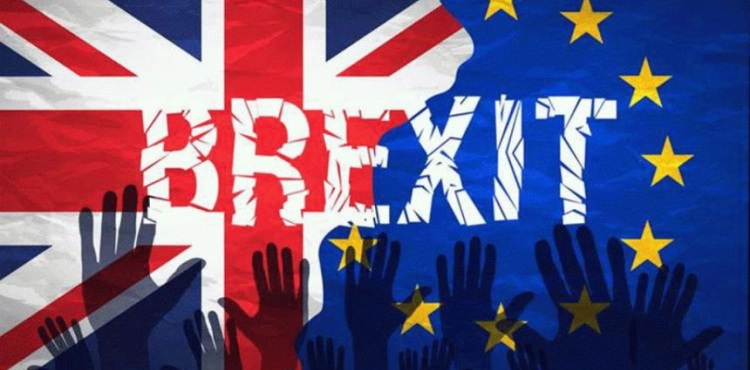Despite the free trade agreement signed by London and Brussels, suppliers of food and medicine in Britain fear that the changes quickly introduced will disrupt supplies and increase costs, undermining the government´s claims about Post-Brexit Gains.
While Prime Minister Boris Johnson promised a year ago a "completely ready-made" deal, the Food and Beverage Federation complained that Johnson "delivered (the agreement) four business days before Britain left the European Union´s single market at the end of 2020."
National Farmers´ Union President Minnette Batters said members "expect that trade at the border will continue to be disrupted," despite the agreement signed Wednesday.
With many companies rushing to order more goods or fulfilling orders delayed due to closures resulting from the Coronavirus, the ports of the English Channel, especially Dover, were already crowded before the announcement of an agreement.
The situation worsened when European countries closed their borders with Britain for two days before Christmas in an attempt to curb the spread of a new, more contagious strain of Covid-19.
Thousands of trucks heading to the ports were stranded amid massive traffic jams and it took several days with the help of the armed forces to overcome the situation.
"The chaos that prevailed last week in Dover and the nature of the final moments of this agreement means that there will be a major disruption in supplies and some prices will rise," said Ian Wright, chief executive of the Food and Beverage Association.
Although the settlement agreement between London and the European Union removed the risk of quotas and tariffs, all new checks and forms that must be filled out will take time and increase the costs of food and drug companies, trade associations complain.
About 30 percent of the food consumed in the United Kingdom comes from countries of the European Union, with Britain importing nearly half of fresh vegetables and most fruits.
But John Allan, president of the giant market-leading giant Tesco, sought to reassure consumers and told the BBC that the new administrative costs "would not be tangible in terms of the prices consumers pay."
But small food companies do not have Tesco´s market importance.
The changes also affect the import and export of medicines in the midst of a global pandemic that has killed tens of thousands in Britain itself.
Mark Diane of the Navefield Trust, an independent healthcare research center, said in a statement that the agreement did not dispel difficulties over "the flow of vital supplies into the UK".
He praised the agreement in terms of "mutual recognition of inspections of pharmaceutical factories and some cooperation in customs", but warned that "the routine in bringing vital products into and out of the United Kingdom is still multiplying."
He warned that this would make it more difficult and costly "to obtain supplies to the NHS or to sell them competitively in Europe."
He explained that it was also unclear whether the agreement provides for the mutual recognition of standards for ventilators and face masks necessary to combat Covid-19.
In the case of drugs with short shelf life, the British Ministry of Health asked "companies to ensure that they can transfer these drugs from the European Union in the event of interruption of supplies," according to the Royal Pharmaceutical Society.
It also said that the government has secured additional storage space and more ships, while giving priority to drug shipments over ferries from certain ports.
Nevertheless, Diane writes in the British Medical Journal that given the need for a "major logistical and legal shift overnight" and that Britain has experienced a shortage of generic medicines in recent years, "a promise that no shortages will occur will require a lot of courage."
Johnson admitted in an interview with the BBC on Wednesday that "there will be changes", but insisted that Brexit would lead to a commercial boom through "free trade agreements with other countries around the world."












